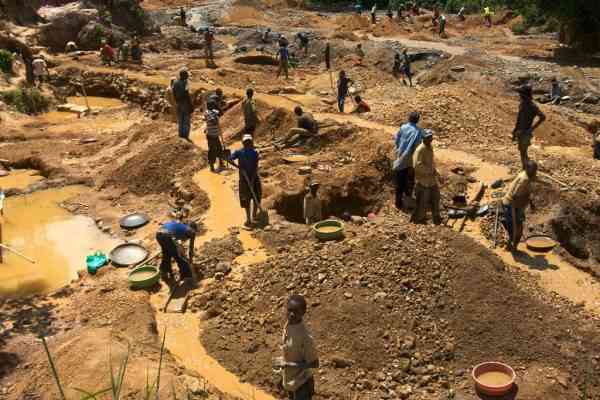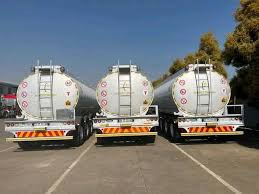
AS the El Niño-induced drought’s grip on Zimbabwe tightens, many children in the countryside awash with gold deposits are increasingly being pushed to work as miners during school holidays.
In Makonde West and Hurungwe East of Mashonaland West province many of the children, desperate to help their parents to put food on the table and pay their schools fees, are finding their way to Sanyati and Chirariro rivers where they tunnel riverbeds for the yellow metal.
The children’s predicament highlights the devastating impact of the drought, which has led to widespread hunger and financial hardship, forcing families to prioritise basic survival over education. Many children have dropped out of school altogether, unable to afford food, clothing or school fees.
Anesi Makaya (88) is finding the situation hard to stomach.
“My heart aches when I see my children and grandchildren suffer without food, clothing or education during this time of hunger. This is not the life I envisioned for them,” he mumbled.
“We can spend three to four days without eating, especially when we do not get something from mining here. Sometimes we even sleep on vegetables. We do not have a safe water source, we have no borehole, we are drinking water from the river.
“The children we bring here can spend the whole day without eating, our fields are dry, the life that I am living is not well, as old as I am, I’m not supposed to be here gold panning, my whole body aches sometimes I even struggle to stand up, but I try by all means to be here and work for my children, Makaya added.
Witnessing their breadwinners toil daily along the rivers often forces many of the children to forego schooling just to help their parents and guardians. To them talk of child labour and the harsh and dangerous condition of the trade hardly dissuades them because food handouts to desperate villagers is hardly enough to go around.
- Govt completes 166 houses for Cyclone Idai victims
- Chegutu mine collapse: Govt appeals for help
- Harare residents plot protest over cholera
- Harare residents plot protest over cholera
Keep Reading
One villager, who preferred to remain anonymous said: “Sometimes when maize arrives it is most likely to be given to 10 people or less, as they first give it to the elderly and the handicapped. We do not know how some of us who are not handicapped are going to survive.”
Artisanal gold miner Unna Chiduwa from Chirariro said: “There is hunger here, so we survive on gold. We appeal for help from the government to help us with food aid, we are surviving on 5 units of gold that we get here, if on that particular day there is nothing we sleep on empty stomachs.”
President Emmerson Mnangagwa declared the 2023/24 summer cropping a national disaster following the El Nino-induced drought.
USAid’s food security arm, FewsNet, said the 2024 poor harvest will severely impact on household food security.
It said the situation would be worsened by high food prices and limited access to income-earning opportunities leading to crisis levels in the country’s deficit-producing areas.
Consumer prices rose by 49% in March 2024 month-on-month compared to 5,4% in February 2023.
According to the 2023 multi-dimensional poverty index, the average deprivation score among people living in multi-dimensional poverty in Zimbabwe was 42,6% of the total population.
Mashonaland West Provincial Affairs and Devolution minister Marian Chombo told NewsDay that it is government’s priority that those in need of food aid receive assistance.
“Recently the President, in his wisdom after the food situation assessment, declared a state of disaster and that means resources are being mobilised to ensure that all people get food assistance and the government through social welfare will ensure that no person will go hungry as enough resources for food aid are being mobilised and distribution of food aid has also commenced,” she said.
“The food distribution is monitored through district development co-ordinators to ensure that every person gets food assistance leaving no place or person behind.”
Member of Parliament for Hurungwe East Chenjerai Kangausaru added: “We have challenges that we have encountered at Priviri where we have young children who are panning for gold due to poverty. In Hurungwe East most gold panners are women.
“The reason for this is there is no water, climate change has affected thus we appeal to Zinwa to also release water so that the community is able to use it in their gardens and try to earn a living.”
At least 7,7 million people will require humanitarian assistance in Zimbabwe as a result of the effects of El Niño.
A United Nations report states that the World Food Programme and its partners will provide basic food assistance to meet urgent food and nutrition needs of households in both rural and urban areas.
In rural areas, food assistance will be provided through World Food Programme (WFP)’s Lean Season Assistance Programme implemented in collaboration with the Public Service, Labour and Social Welfare ministry co-ordinating with the Food Deficit Mitigation Programme.
In urban areas, WFP will implement cash-based transfers to support food insecure households.










